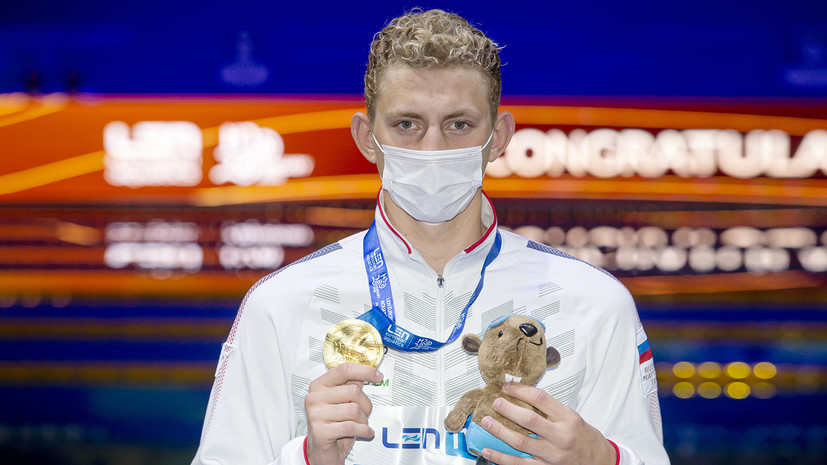The first five types of Sunday's swimming program at the World Aquatics Championships turned out to be unusually unsuccessful for the Russian national team: only Yulia Efimova managed to climb the podium at a distance of 50 m breaststroke (30.22 - bronze).
The second Russian athlete Tatiana Belonogoff finished eight in this final.
Mikhail Vekovishchev finished sixth in the 100m butterfly (Hungarian Krishtof Milak became the champion at this distance with a tournament record - 50.18).
Arina Surkova made her way to the final of "fifty kopeck" butterfly, but sailed last.
Two more finals - the women's 200m backstroke and the men's 50m freestyle - were held without the participation of the Russians at all.
Logically, Kliment Kolesnikov, who won the 100m freestyle with a championship record, was supposed to swim the freestyle sprint, but he was eliminated in the semifinals a day earlier, showing 16th time there.
In the four remaining finals, Russia could well have taken more than one gold. Moreover, the victory of Ilya Borodin was not one of those counting on: at a distance of 400 meters in complex swimming, Russia has never won awards in continental championships. The last medal (silver) is dated 1985, and it was won by Vadim Yaroshchuk. And the last victory was won 40 years ago by the legendary Olympic champion Sergei Fesenko.
In the women's 400 m freestyle, in the morning, Anna Egorova reached the final with the best time, and it looked like progress: at the previous European Championships in Glasgow, she took second position at a distance of 800 meters, but did not become a medalist at 400 m.
Moreover, the last medal won by domestic athletes in this form is dated by the same 1985 (Elena Dendeberova won bronze).
In the final, Yegorova improved her morning result by almost three seconds, but still touched the side of the second (4.06.05): she was outstripped by Italian Simona Kvadarella (4.04.66)
It would be much more logical to win the men's combined relay on this final day.
But, alas ... In this type of swimming, the Russian fours were twice second, first for men, and then for women.
The British were the winners in both cases.
And if for Maria Kameneva, Efimova, Svetlana Chimrova and Arina Surkova silver became akin to victory, then for the four in which Kolesnikov, Kirill Prigoda, Mikhail Vekovishchev and Andrey Minakov started, the second result could only indicate that the athletes were trite tired. This is not surprising: Kolesnikov won three gold medals in Budapest, Vekovishchev - two in relay races, and besides that he swam individual distances, and in general it's time to remember that the European Championship is actually a training start this year. But the end of the competition, despite the record number of awards won by Russia (nine gold, five silver, eight bronze), turned out to be somewhat blurry.
Now the head coach will have to puzzle over: what to do with Efimova?
Julia has two individual medals at distances of 50 and 200 m breaststroke, the fourth result in the 100-meter race and silver in the combined relay, where Efimova completed her stage in 1.05.77 from a "live" start.
But most importantly, all this happened against the background of more than mediocre performances of Maria Temnikova, an athlete who deprived Efimova of the opportunity to start at the Games in Tokyo at her crown two hundred meters.
Although the decision, as it seems to me, lies on the surface: over the years of her performances, Yulia has done so much for Russian swimming that this is the very case when it would be more fair to meet an athlete halfway.

